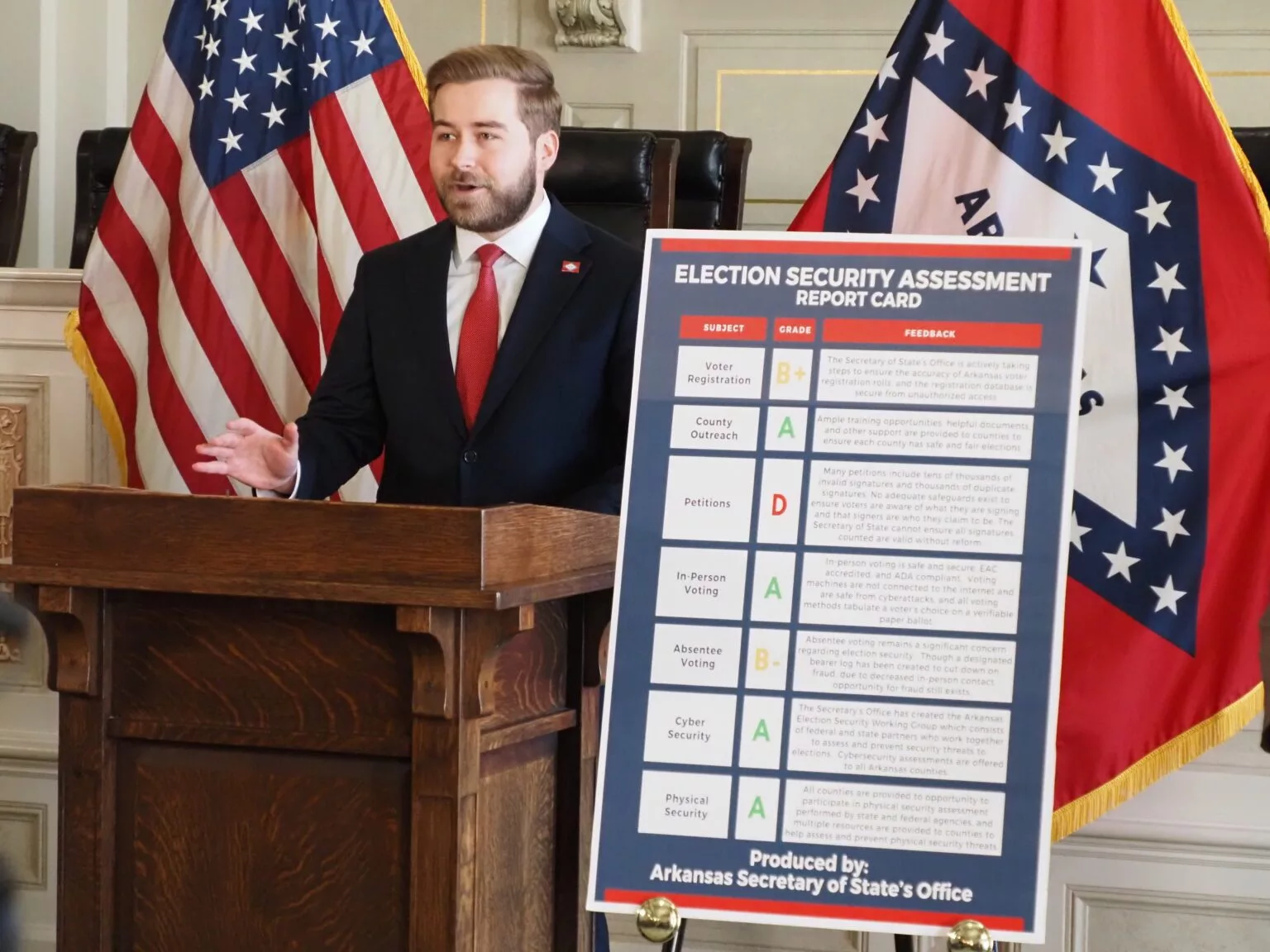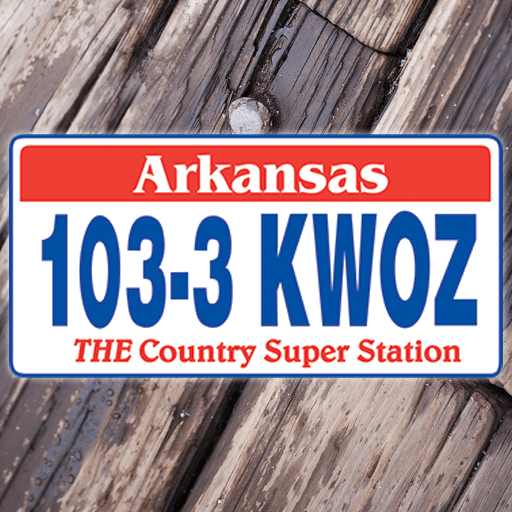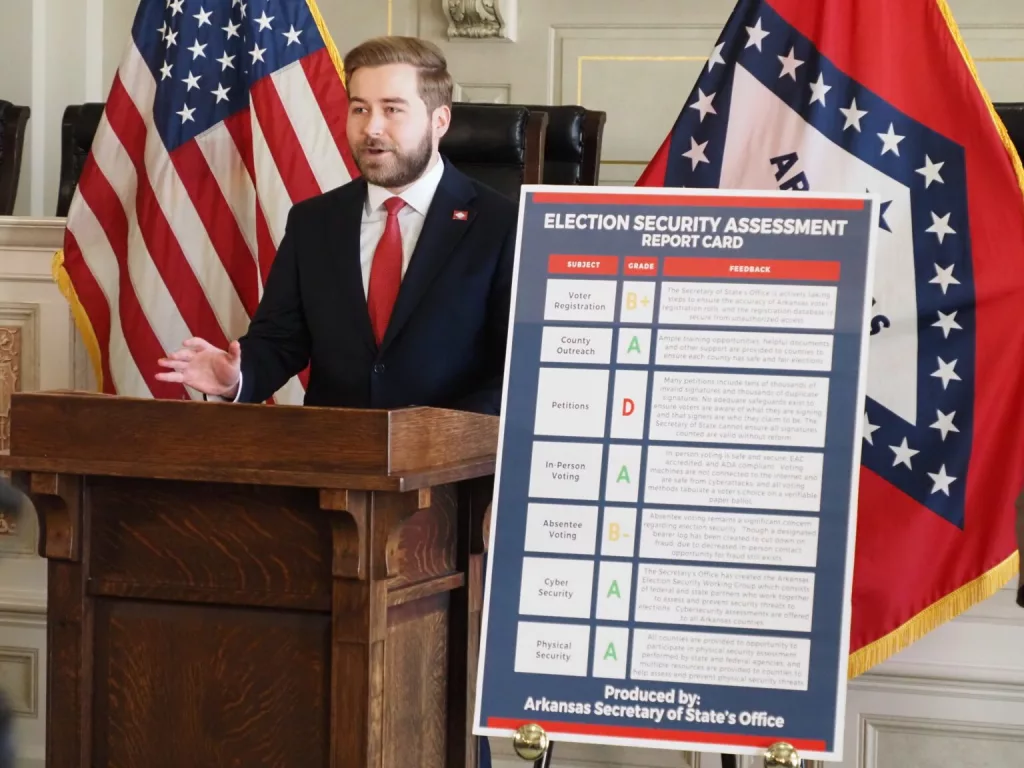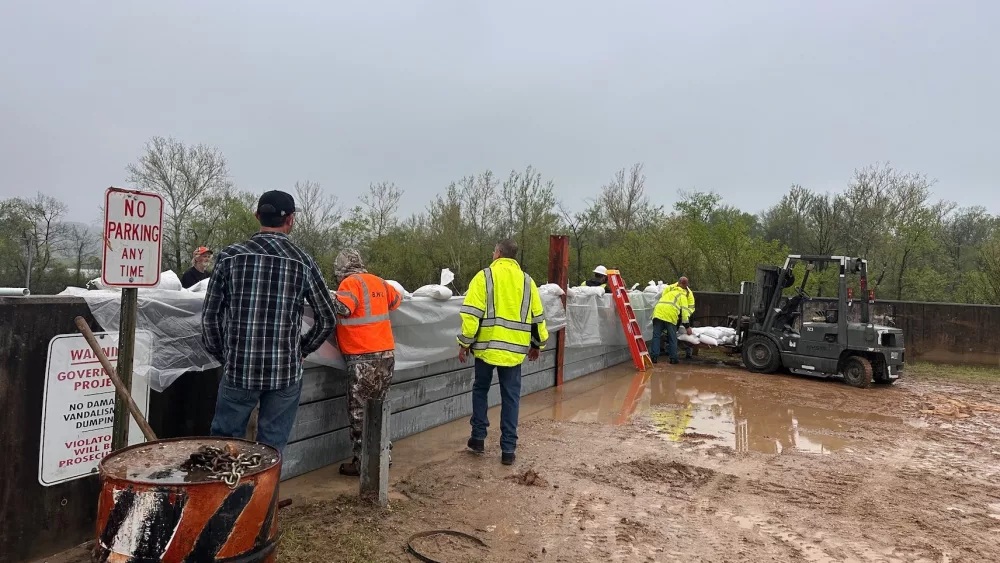
Secretary of State Cole Jester presents a report on election security in a press conference on Monday, February 17, 2025. (Tess Vrbin/Arkansas Advocate)
By Tess Vrbin , Arkansas Advocate
Arkansas Secretary of State Cole Jester on Monday declared Arkansas has “the most secure elections in the country” but cast doubt on the security of absentee voting and the integrity of citizen-led ballot initiatives.
Jester, who took office Jan. 2, called for a “top-to-bottom security review” of Arkansas’ election procedures on Jan. 24 and presented his findings at a press conference Monday. The report his office released Monday labeled four of its seven focus areas — in-person voting, county outreach, cybersecurity and physical security — with an “A” grade. The report labeled voter registration “B+” and absentee voting “B-.”
“Right now there’s little to disincentivize someone from maybe misrepresenting what might be on the initiative petition when trying to collect signatures.” — Deputy Secretary of State Nathan Lee
The initiative petition process received the lowest grade with a “D,” and Jester said the review found “thousands of fraudulent signatures” on petitions for ballot measures.
He and his deputy secretary and chief legal counsel, Nathan Lee, expressed support for several bills moving through the Legislature that would add more regulations to the initiative process.
“Right now there’s little to disincentivize someone from maybe misrepresenting what might be on the initiative petition when trying to collect signatures,” Lee said.
Sen. Kim Hammer, R-Benton, is sponsoring three bills that a House committee considered Monday afternoon:
- Senate Bill 207 would require canvassers to disclose that petition fraud is a Class A misdemeanor, which is punishable by up to 1 year in prison.
- Senate Bill 208 would require canvassers to request a photo ID from potential signers.
- Senate Bill 211 would require canvassers to file an affidavit with the secretary of state certifying they complied with the Arkansas Constitution and state laws related to canvassing, perjury, forgery and fraudulent practices in the procurement of petition signatures. Signatures submitted without the affidavit would not be counted.
All three bills passed the Senate Wednesday, as did their emergency clauses, which would allow them to go into effect immediately upon Gov. Sarah Huckabee Sanders’ signature.
Two more bills sponsored by Hammer passed the Senate, though their emergency clauses did not. Senate Bill 209 would disqualify signatures collected by canvassers if the secretary of state finds “by a preponderance of evidence” that they violated state law collecting the signatures. Senate Bill 210 would require potential signers to read the ballot title of a petition or have it read aloud to them in the presence of a canvasser. It would also make it a misdemeanor for a canvasser to accept a signature from people who have not read the ballot title or had it read aloud to them in the presence of a canvasser.
Under Article 5 Section 1 of the state Constitution, Arkansans can propose laws and constitutional amendments or repeal state laws through the initiative and referendum process, which requires citizens to collect a certain number of signatures that must be certified by state officials before being placed on the ballot for a vote.
Arkansas’ elections are overseen by the secretary of state, a position Hammer is seeking in 2026. Jester’s predecessor, John Thurston, was elected treasurer in November, and Jester’s appointment by Sanders means he cannot run for secretary of state.
Hammer’s five bills passed a divided Senate committee Tuesday. Opponents of the bills called them an attack on direct democracy. Supporters alleged fraud and misconduct by canvassers collecting signatures last year for a proposed constitutional amendment that would have created a limited right to abortion.
The Arkansas Abortion Amendment was one of several proposed measures in 2024 that failed to qualify for the ballot due to paperwork issues, insufficient signatures and legal challenges.
Lee said the secretary of state’s office is “very reactive” and does not have “any tools currently to be proactive in combating fraud in the petition process.”
The existing law making petition fraud a misdemeanor specifies that a person must “knowingly” commit fraud, such as signing a petition more than once, in order for the action to be a crime.
When asked how to prove a person’s intent, Jester said this is “a criminal law question.”
“If you did it 15 times, there’s probably evidence that’s on purpose. If you do it twice and there’s no other evidence, that would not show intent,” he said.
Other findings
Legislative Democrats are sponsoring a bill that would create no-excuse absentee voting in Arkansas. The bill has not yet been heard in committee.
Mail-in absentee ballots account for less than 1% of all Arkansas ballots, Jester said, but it comes with “inherent risk.” He said his office “will oppose any effort to expand mail-in voting” and support in-person voting early or on Election Day.
Unlike in-person voting, absentee voting does not come with the guarantees that voters were not coerced into voting a certain way and that “no one else’s hands are on the ballots” before election officials receive them, Jester said.
He also said Arkansas’ rejection rate of absentee ballots is “a really good thing because that means our clerks are doing their jobs seriously and thoroughly.”
Regarding voter registration, Jester said state and local election officials work hard to ensure their records of eligible voters are accurate, such as removing deceased Arkansans from voter rolls.
Lee said the secretary of state’s office seeks to work with federal authorities to ensure that only United States citizens vote in Arkansas elections. It is illegal on the federal level for noncitizens to vote, but the issue became a talking point in the Republican-led U.S. House of Representatives last year in the run-up to Election Day.
Arkansas ranks last in the nation for voter participation, according to a study from the National Conference on Citizenship. Arkansas is also one of seven states that do not allow electronic voter registration, according to the National Conference of State Legislatures. A Democrat-led bill would institute this policy but has not yet been heard in committee.
In 2024, lawmakers approved an emergency rule drafted by the Arkansas Board of Election Commissioners that requires a “wet signature,” meaning signing with a pen, on voter registration applications except at certain state agencies.
“Though online voter registration would be more convenient for many Arkansans, grave concerns exist regarding the accuracy of online registrations,” Jester’s report states. “…Accurate wet signatures are not currently possible in an online system. Additionally, such a system would require the cooperation of several government agencies with very different levels of security and software, and thus such a system is not currently feasible.”
Searcy and Independence counties do not use voting machines and instead use hand-counted paper ballots. When state election officials saw discrepancies in Searcy County’s 2024 primary election results after an audit, county officials defended the use of paper ballots and promised to learn from the errors.
A federal judge blocked the emergency rule in August in response to a challenge from voter participation advocates, but in September, the 8th U.S. Circuit Court of Appeals issued an administrative stay that allowed state officials to implement the rule while parties in the lawsuit prepared court filings.
Jester’s report states that electronic voting machines are not connected to the internet and therefore are not subject to election interference via cyberattacks. Searcy and Independence counties do not use voting machines and instead use hand-counted paper ballots.
When state election officials saw discrepancies in Searcy County’s 2024 primary election results after an audit, county officials defended the use of paper ballots and promised to learn from the errors.
Local and state officials have repeatedly vouched for the security of voting machines, while local voters have expressed distrust in the election system, whether it be conducted through a paper ballot system or an electronic one.
The Arkansas Advocate is a nonprofit, nonpartisan news organization dedicated to tough, fair daily reporting and investigative journalism that holds public officials accountable and focuses on the relationship between the lives of Arkansans and public policy.
Have a news tip or event to promote? Email White River Now at news@whiterivernow.com. Be sure to like and follow us on Facebook and Twitter. And don’t forget to download the White River Now mobile app from the Google Play Store or the Apple App Store.
Get up-to-date local and regional news/weather every weekday morning and afternoon from the First Community Bank Newsroom on Arkansas 103.3 KWOZ. White River Now updates are also aired on weekday mornings on 93 KZLE, Outlaw 106.5, and Your FM 99.5. Catch CBS News around the top of every hour on 1340 KBTA.












